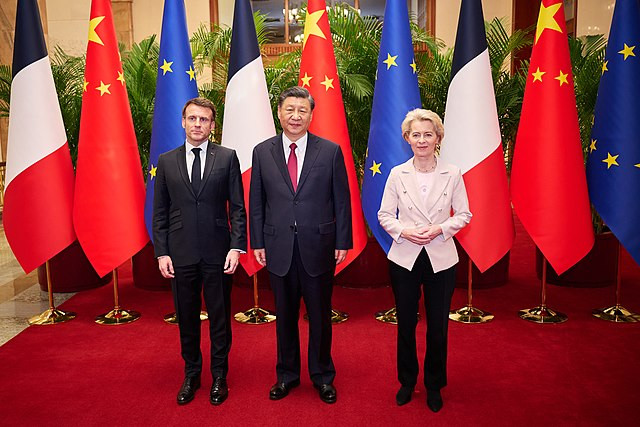China is pressing the European Union to abandon its plans to impose preliminary tariffs on Chinese electric vehicle (EV) imports. These tariffs, which could reach up to 38.1%, are slated to take effect by July 4 while the EU conducts an investigation into what it describes as excessive and unfair subsidies provided by Beijing.
The European Commission has confirmed that technical talks will take place this week with Chinese officials in Brussels. "The EU side has emphasized that any negotiated outcome of the investigation must be effective in addressing the injurious subsidization," a Commission spokesperson stated. German Chancellor Olaf Scholz echoed this sentiment, stressing the need for "serious movement and progress" from China.
China, on the other hand, has been vocal about its opposition to these tariffs, expressing a willingness to negotiate but remaining firm in its stance against what it perceives as protectionist measures. The state-controlled Global Times reported that Beijing hopes for the EU to retract its tariff plans before the July 4 deadline.
Analysts and trade experts have highlighted the complexity of the situation, noting that any potential compromise would require significant concessions from China. Alicia Garcia Herrero, a senior fellow at Bruegel, an influential EU affairs think tank, remarked that dropping the planned curbs before the upcoming French elections on June 30 and July 7 would be highly unlikely. "The Commission can't change a decision it has been pondering for months on months on months," she said.
Despite these challenges, some industry leaders view the ongoing dialogue as a positive sign. Siegfried Russwurm, head of Germany's largest industry association BDI, commented, "As long as there are talks you're not shooting at each other." Russwurm, who also chairs German conglomerate Thyssenkrupp, noted that tariffs are the last thing Germany needs as a major exporting nation.
Meanwhile, China has hinted at possible retaliatory measures should the EU proceed with the tariffs. The Global Times suggested that Beijing could impose tariffs on European dairy goods and large-engined petrol cars, in addition to launching an anti-dumping investigation into EU pork imports. Jacob Gunter, lead analyst at Berlin-based China studies institute MERICS, indicated that tariffs of up to 25% on Europe-made cars with 2.5-liter engines or larger are probable. "Pork and dairy are already on the table for Beijing, and likely more agricultural products will be threatened," he added.
In a strategic move to sway the EU, China has also floated the idea of offering perks to German luxury car manufacturers. According to sources familiar with the discussions, Beijing suggested lowering existing tariffs on large-engine cars if Berlin could convince the EU to scrap the planned EV levies. China's Commerce Minister Wang Wentao hinted at this possibility during a meeting with German Vice-Chancellor Robert Habeck.
Despite the mounting pressure, the European Commission remains steadfast in its investigation. "The EU side emphasized that any negotiated outcome to its investigation must be effective in addressing the injurious subsidization," said Olof Gill, a Commission spokesperson. The Commission is expected to make a final decision on the tariffs by November 2, following a thorough anti-subsidy investigation.
The stakes are high for both sides. For China, preventing the tariffs could set an important precedent for other major economies contemplating similar measures. Canada is reportedly considering potential fees on Chinese EVs to align with the actions taken by the EU and the US.
In contrast, the EU is grappling with internal pressures. Germany, home to major automotive giants like Mercedes-Benz and BMW, has voiced its opposition to the tariffs. German Transport Minister Volker Wissing warned that punitive tariffs could spark a "trade war" with Beijing, potentially harming German companies and their top products.






